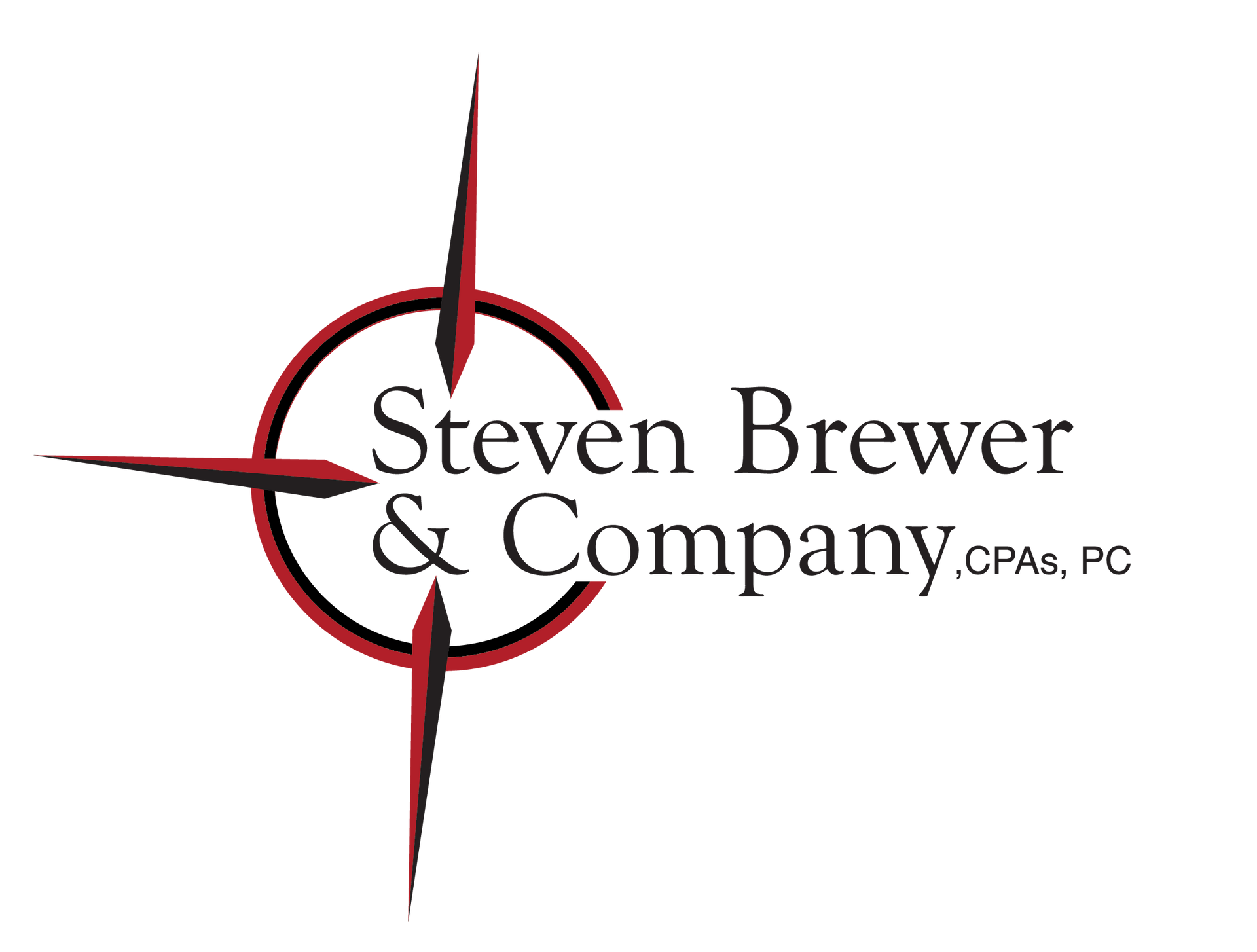Identity Theft, Tax Fraud and ID Protection PINs
Author name
By: Steven Brewer, CPA
We hear every day that another cyberattack has exposed thousands of pieces of personal data. Just recently, it has come to light that millions of us have had our personal data, including social security numbers, exposed by a cyberattack on National Public Data.
Identity theft takes many different forms. One of the most troubling is when someone uses your personal data to file a tax return. They will file false information using your name and social security number to obtain credits and refunds that are sent to them. There is a way for you to prevent this from happening.
The Internal Revenue Service instituted a program for Identity Protection PINs. These are a series of six-digit numbers assigned to you each year. Each year, you will receive a new PIN so you must give this to your preparer to be able to file your return. You must include this PIN when you e-file your tax return to identify that YOU are filing the return. If a return is filed without the PIN, then the return is rejected.
When you set up the PIN program with the IRS, you also will set up an online account with the IRS. That account will allow you to see your records with the IRS, what has been filed, what the results are, etc. This is very helpful if you ever have a question about what the IRS has. It also will help your tax preparer. When you have an online account, the tax preparer can send you a Power of Attorney form to the account for you to e-sign. The Power of Attorney form is needed for the tax preparer to receive information from the IRS on you if there is ever a problem that you ask the preparer to help you with.
To obtain information on the Identity Theft PIN, go wot https://www.irs.gov/identity-theft-fraud-scams/get-an-identity-protection-pin. Only you can obtain the PIN. No preparer or other third party can do this so if someone is telling you they can get one for “turn and run the other direction”.
You do have the option to opt out of the program unless you are a confirmed victim of identity theft. If so, you cannot opt out.
So, for your piece of mind and to stop the “bad guys” from getting into your taxes, get your PIN today.

I just finished reading a report on what tax professionals should expect from the Internal Revenue Service (IRS) in the very near and distant future. These changes are coming from the new Trump administration cuts via DOGE. First off, is a 40% planned workforce deduction by May 15. This will affect all parts of the IRS but mainly in audit and tax assistance areas. Second is the closing of over 110 taxpayer assistance centers. These centers help taxpayers file tax returns, answer questions and help in resolving issues. Lastly, the Direct File Program started in 2024 is under review and may not be continued. So, what does the mean for the taxpayers? A smaller workforce means less person-to-person interaction on matters. Any attempt to directly contact a person at the IRS will probably be met with a long time on hold. The IRS will also be using technology to replace a lot of what is being done by a person. Systems will be put into place that will review returns and flag entries that may or may not be “normal”. One should expect to see more correspondence from the IRS from this questioning an item on the return. IRS will push taxpayers to communicate with them via digital platforms like through an IRS account, which we talked about in previous blog post. IRS will also push that more documentation will have to be submitted digitally to work in their systems. Taxpayers will either have to work with the IRS via their platforms or seek out the assistance of a tax professional to help with issues. Tax professionals are also going to have to improve the way they work with the IRS to have an efficient and effective way of communicating. Taxpayers who used the Direct File Program in 2024 may have to find another way to file in 2025 and beyond. They will either have to look at one of the other “free” programs from a third party, buy the tax preparation software or employ a tax professional to prepare their return. With these changes, taxpayers are also going to have to be careful with their documentation of items claimed on the return. Documentation will need to be more real time via dates of transactions and real documents, not estimates. The reduction in the IRS is going to result in headaches, less human interaction, and more reliance on technology

You think planning a wedding ceremony is complicated? Wait till you see the possible tax issues involved. If you are getting married this year, there is a long list of things you need to be aware of and plan for before tying the knot that can have a significant impact on your taxes. And there are a number of tax-related actions you should take as soon as possible after marriage. Considerations Before Marriage Filing Status – For tax purposes, an individual’s filing status is determined on the last day of the tax year. Thus, regardless of when you get married during the year, you and your new spouse will be treated as married for the entire year and, therefore, can no longer file as single individuals or use the head of household status as you may have done prior to this marriage. Your options are to file using the married joint status, combining your incomes and allowed deductions on one return, or to file two separate returns using the married filing separate status. The latter is not the same as the single status you may have used in the past and can include some negative tax implications. Filing separately in community property states (Arizona, California, Idaho, Louisiana, Nevada, New Mexico, Texas, Washington, or Wisconsin) can additionally be complicated. Also, the terms of a prenuptial agreement, if you have one, can affect your filing status choice. Deductions – The standard deduction for each year is inflation adjusted and for 2025 for a married couple is $30,000 and for a single individual is $15,000. So, if both of you have been filing as single and taking the standard deduction, there is no loss in deductions. However, if in past years one of you had enough deductions to itemize and the other took the standard deduction, after marriage you would either have to take the joint standard deduction or itemize, which might result in a loss of some amount of deductions. There could also be an overall reduction of the standard deduction if one or both of you previously filed as head of household. New Spouse’s Past Liabilities – If your new spouse owes back federal taxes, past state income tax liabilities or past-due child support or has unemployment income debts to a state, the IRS will apply your future joint refunds to pay those debts. If you are not responsible for your spouse’s debt, you are entitled to request your portion of the refund back from the IRS by filing an injured spouse allocation form. Combining Incomes – Individuals filing jointly must combine their incomes, and if both spouses are working, combining income can trigger a number of unpleasant surprises, as many tax benefits are eliminated or reduced for higher-income taxpayers. The following are some of the more frequently encountered issues created by higher incomes: Being pushed into a higher tax bracket. Causing capital gains to be taxed at higher rates. Reducing the childcare credit which begins to phase out when your combined incomes (MAGI) reach $400,000. The childcare credit may be reduced if either or both of you have a child and you both work, because a lower percentage of expenses applies as income increases. The possible loss or reduction of the earned income tax credit which applies to lower income individuals. Limiting the deductible IRA amount. Triggering a tax on net investment income that only applies to higher-income taxpayers. Causing Social Security income to be taxed. Reducing or eliminating medical itemized deductions. Filing separately generally will not alleviate the aforementioned issues because the tax code includes provisions to prevent married taxpayers from circumventing the loss of tax benefits that apply to higher-income taxpayers by filing separately. On the other hand, if only one spouse has income, filing jointly will generally result in a lower tax because of the lower joint tax brackets. In addition, some of the higher-income limitations that might have applied to an unmarried individual with the same amount of income may be reduced or eliminated on a joint return. Filing as married but separate will generally result in a higher combined income tax for married taxpayers. The tax laws are written to prevent married taxpayers from filing separately to skirt around a limitation that would apply to them if they filed jointly. For instance, if a couple files separately, the tax code requires both to itemize their deductions if either does so, meaning that if one itemizes, the other cannot take the standard deduction. Another example relates to how a married couple’s Social Security (SS) benefits are taxed: on a joint return, none of the SS income is taxed until half of the SS benefits plus other income exceeds $32,000. On a married-but-separate return, the taxable threshold is reduced to zero. Aside from the amount of tax, another consideration that married couples need to be aware of when deciding on their filing status is that when married taxpayers file jointly, they become jointly and individually responsible (often referred to as “jointly and severally liable”) for the tax and interest or penalty due on their returns. This is true even if they later divorce. When using the married-but-separate filing status, each spouse is only responsible for his or her own tax liability. Healthcare Insurance – If either or both of you are obtaining health insurance through a government Marketplace, your combined incomes and change in family size could reduce the amount of the premium tax credit to which you would otherwise be entitled, requiring payback of some or all of the credit applied in advance to reduce your monthly premiums. More complicated yet, if either or both of you are included on your parent’s’ Marketplace policy, those insurance premiums must be allocated from the parents’ return to your return. Spousal IRA – Spousal IRAs are available for married taxpayers who file jointly where one spouse has little or no compensation; the deduction is limited to the smaller of 100% of the employed spouse’s compensation or $7,000 (2025) for the spousal IRA. That permits a combined annual IRA contribution limit of up to $14,000 for 2025. For each spouse age 50 or older, the maximum increases by $1,000. However, the deduction for contributions to both spouses’ IRAs may be limited if either spouse is covered by an employer’s retirement plan. Capital Loss Limitations – When filing as unmarried, each individual can deduct up to $3,000 of capital losses on their tax return for a possible combined total of $6,000, but a married couple is limited to a single $3,000. Impact On Parents’ Returns – If your parents have been claiming either of you as a dependent, they will generally lose that benefit. In addition, if you are in college and qualify for one of the education credits, those credits are only available on the return where your dependency applies. That generally means your parents will not be able to claim the education credits even if they paid the tuition. Impact on State Return – Some states require taxpayers to use the same filing status on their state return as they did on the federal return. When deciding which filing status is more beneficial for you, you should also consider how your state return will be affected. Things To Take Care of After Marriage: Notify the Social Security Administration − Report any name change to the Social Security Administration so that your name and SSN will match when you file your next tax return. Informing the SSA of a name change is quite simple. The Social Security Administration provides an online site to accomplish this task. Your income tax refund may be delayed if it is discovered that your name and SSN don’t match at the time your return is filed. Notify the IRS − If you have a new address, you should notify the IRS by sending Form 8822, Change of Address. Notify the U.S. Postal Service − You should also notify the U.S. Postal Service when you move so that any IRS or state tax agency correspondence can be forwarded. Review Your Withholding and Estimated Tax Payments − If both you and your new spouse work, your combined income may place you in a higher tax bracket, and you may have an unpleasant surprise when preparing your return for the first year of your marriage. On the other hand, if only one of you works, filing jointly with your new spouse can provide a significant tax benefit, enabling the working spouse to reduce their withholding or estimated tax payments. In either case, it may be appropriate to review your withholding (W-4 status) and estimated tax payments, if any, to make sure that you are not going to be under-withheld and that you don’t set yourself up to receive bad news for the next filing season. The IRS provides a W-4 Webpage that provides links to the form and a tax withholding calculator. Notify the Marketplace – If you or your spouse has purchased health insurance through a government Marketplace, you must notify the Marketplace of your change in marital status. If you were included on a parent’s health insurance policy through a Marketplace, then the parent must notify the Marketplace. Failure to notify the Marketplace can create tax-filing problems. If you have any questions about the impact of your new marital status on your taxes, please call this office.

Identity Theft. We hear about this all the time. It is on TV, on the radio or the internet every day. We think about this being where someone uses your personal information to get a loan, set up a credit card in your name, etc. Did you know that thousands of tax returns are filed every year that are fraudulent. Someone uses another person's social security to file a return, receive a refund and then disappear. Every year we have a client or two who has had their IRS account “hacked” with an identity theft issue. How can you secure your tax filing better? It is called Identity Personal Identification Number (PIN). This is a unique number assigned to you each year by the IRS which must accompany your e-filing of your tax return. Each year, the IRS will send you a notice via mail, with the unique number assigned to you that year. You will need to give it to your tax preparer to file your return. Without the return will be rejected. That notice will also be available in your online account. The first thing you need is an online account with the IRS. We spoke about this in a previous post. You can go to this link to find out more about individual PINs. Get an identity protection PIN | Internal Revenue Service. When you file a joint return with your spouse, both the taxpayer and the spouse should get a PIN. Without that, the return is only 50% secure. We highly encourage our clients to get this PIN to secure their filings each and every year from here on out. If you have any questions, please feel free to contact us.
